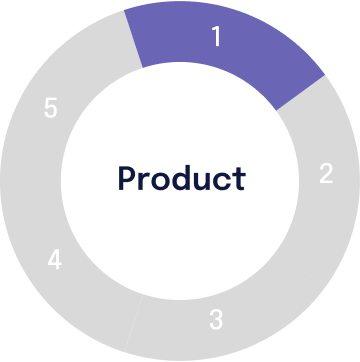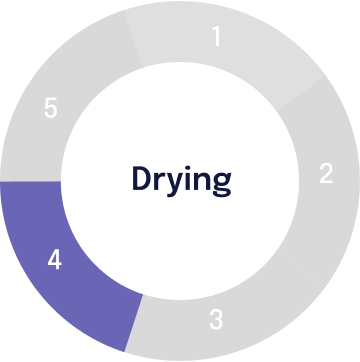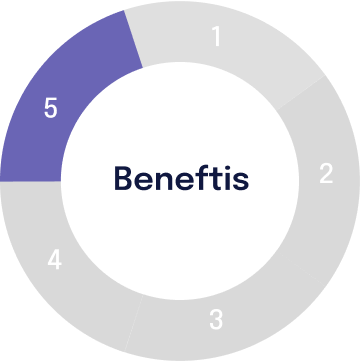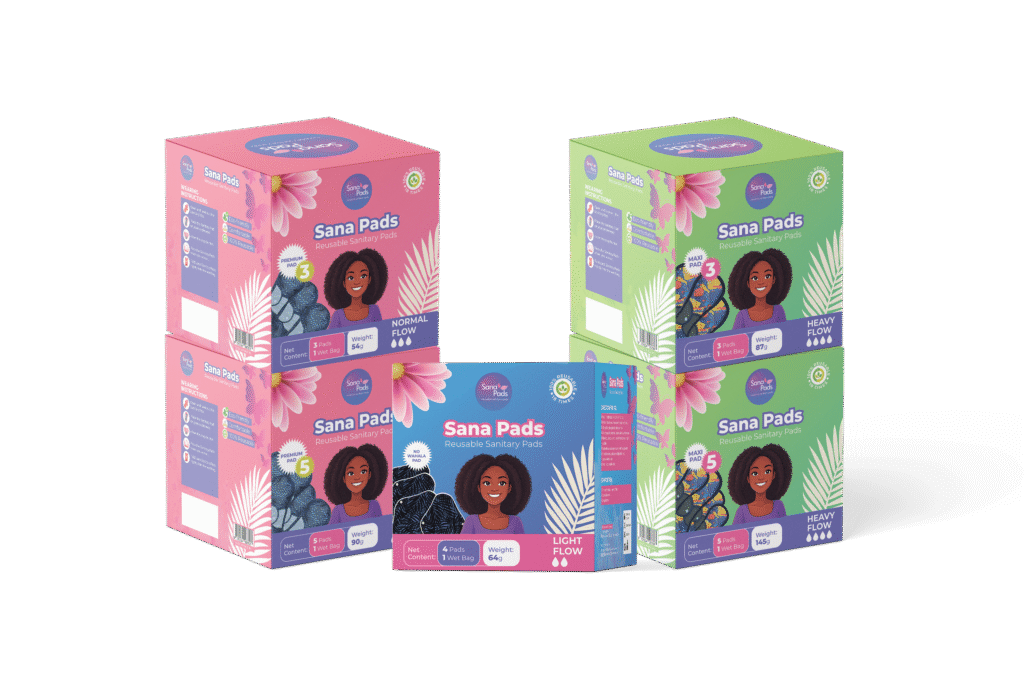Organic Cotton Reusable Sanitary Pads: The Natural Choice for Nigerian Women
When Adunni first heard about organic cotton reusable pads, she was skeptical. Her 15-year-old daughter Kemi had been struggling with constant rashes and discomfort during her periods, often missing school because of the irritation caused by regular disposable pads. However, after just one cycle with organic cotton pads, everything changed. Kemi’s skin cleared up, her confidence returned, and she hasn’t missed a single day of school since. This transformation isn’t unique—it’s happening across Nigeria as more women discover the gentle power of organic cotton.
In a country where 50 million women lack reliable access to quality menstrual products, finding the right solution goes beyond just absorption. Moreover, it’s about comfort, health, and dignity. That’s exactly where organic cotton reusable sanitary pads come in, offering a natural, chemical-free alternative that works with your body, not against it.
What Are Organic Cotton Reusable Sanitary Pads?
Understanding Organic Cotton vs. Regular Cotton
Organic cotton represents a revolutionary approach to feminine hygiene. Unlike conventional cotton, organic cotton is grown without harmful pesticides, synthetic fertilizers, or genetically modified seeds. Furthermore, the farming process follows strict environmental and social standards that protect both the earth and the farmers who grow it.
When you choose organic cotton pads, you’re selecting a material that has been cultivated naturally, allowing the cotton fibers to maintain their inherent softness and breathability. Additionally, this means no residual chemicals touch your most sensitive areas. For Nigerian women, this distinction becomes even more important given our warm, humid climate that demands maximum breathability and comfort.
The certification process for organic cotton is rigorous, ensuring that every step from seed to final product meets international standards. Consequently, when you see “organic cotton” on a pad, you can trust that it has been independently verified as chemical-free and environmentally responsible.
The Difference Between Organic and Synthetic Pads
Regular disposable pads typically contain a mixture of synthetic materials, plastic backings, and chemical additives designed for mass production and extended shelf life. However, these materials can trap heat and moisture, creating an environment where bacteria thrive. In contrast, organic cotton allows your skin to breathe naturally while still providing excellent protection.
Synthetic pads often include fragrances, bleaches, and super-absorbent polymers that can disrupt your body’s natural pH balance. Meanwhile, organic cotton works harmoniously with your body’s natural processes, maintaining the delicate balance that keeps you healthy and comfortable. This difference becomes particularly noticeable for young girls like those in secondary schools across Lagos, Abuja, and other Nigerian cities, where comfort during long school days is essential.
The texture difference is immediately apparent—organic cotton feels soft and natural against your skin, while synthetic materials can feel plasticky and uncomfortable. Therefore, making the switch often results in an immediate improvement in comfort levels.
Why Organic Cotton Matters for Nigerian Women
Perfect for Nigeria's Climate
Nigeria’s hot, humid climate presents unique challenges for menstrual hygiene. During the rainy season in places like Port Harcourt or the dry heat of Kano, women need products that can handle intense conditions without causing additional discomfort. Organic cotton’s natural breathability makes it ideally suited for our climate.
The fiber structure of organic cotton allows air to circulate freely, preventing the buildup of heat and moisture that can lead to infections and discomfort. Additionally, this breathability becomes crucial during NYSC postings, long commutes in Lagos traffic, or busy market days when you can’t always change as frequently as you’d like.
Furthermore, organic cotton’s moisture-wicking properties help keep you dry and comfortable even during Nigeria’s most challenging weather conditions. This natural cooling effect can make the difference between a comfortable day and one spent worrying about leaks and discomfort.
Ideal for Sensitive Skin
Many Nigerian women experience skin sensitivity, especially in intimate areas. The combination of heat, synthetic materials, and chemical additives in regular pads can trigger reactions ranging from mild irritation to severe rashes. However, organic cotton’s hypoallergenic properties provide a gentle solution that works for even the most sensitive skin.
Young girls experiencing their first periods often have particularly sensitive skin that reacts poorly to harsh chemicals. Consequently, starting with organic cotton pads can prevent the development of negative associations with menstruation and help establish healthy, comfortable period routines from the beginning.
The absence of chlorine bleaching, synthetic fragrances, and other chemical additives means that organic cotton pads are suitable for daily use without fear of cumulative irritation. This peace of mind allows you to focus on your work, studies, or daily activities instead of constantly worrying about comfort and skin reactions.
What makes our pads unique?
1
Cost-Effective
Long-lasting durability means you save money over time.
2
3
Able to handle heavy flow prevent leaking.
Health Benefits of Organic Cotton Reusable Pads
Reduced Risk of Infections
One of the most significant advantages of organic cotton pads is their ability to maintain your body’s natural bacterial balance. The breathable nature of organic cotton prevents the warm, moist environment where harmful bacteria flourish, thereby reducing your risk of urinary tract infections and yeast infections.
Research shows that women who use breathable, natural materials during menstruation experience fewer infections compared to those using synthetic products. This becomes particularly important for Nigerian women who may not always have immediate access to medical care or who prefer to manage their health naturally.
Moreover, the chemical-free nature of organic cotton means you’re not introducing potentially disruptive substances into your intimate ecosystem. Your body’s natural defenses can work effectively without having to process foreign chemicals, leading to better overall intimate health.
Chemical-Free Protection
Conventional pads often contain a cocktail of chemicals including dioxins from chlorine bleaching, volatile organic compounds from adhesives, and synthetic fragrances that can cause allergic reactions. In contrast, organic cotton pads, especially those made by companies like Sana Pads, use only natural materials in their construction.
Sana Pads combines organic cotton with bamboo fibers to create highly absorbent fabrics that provide superior protection without compromising on health. This natural blend offers the best of both worlds—cotton’s softness and breathability combined with bamboo’s natural antimicrobial properties and exceptional absorbency.
The long-term health benefits of avoiding chemical exposure during menstruation cannot be overstated. Since the vaginal area has high absorption rates, using chemical-free products during your most vulnerable time each month contributes to better reproductive health over your lifetime.
Environmental Impact: Why It Matters in Nigeria
Reducing Plastic Waste
Nigeria faces significant challenges with waste management, particularly plastic waste that doesn’t biodegrade. A single woman using disposable pads generates approximately 5.5 kg of menstrual waste annually. Subsequently, when multiplied across millions of Nigerian women, this creates an enormous environmental burden.
Organic cotton reusable pads can last 3-5 years with proper care, meaning one set can replace thousands of disposable pads. This reduction in waste helps address Nigeria’s growing landfill crisis while also reducing the plastic pollution that affects our waterways and communities.
Furthermore, choosing reusable organic cotton pads supports the circular economy by reducing demand for single-use products. This choice becomes even more impactful when schools, NGOs, and organizations make bulk purchases, creating substantial environmental benefits across entire communities.
Supporting Sustainable Practices
Organic cotton farming practices support soil health, water conservation, and biodiversity. When you choose organic cotton products, you’re supporting farming methods that can help address some of Nigeria’s agricultural challenges while promoting sustainable development.
Local production of organic cotton pads, like those manufactured by Sana Pads in Nigeria, creates employment opportunities while reducing the carbon footprint associated with importing products. This local approach aligns with Nigeria’s goals for economic diversification and self-sufficiency.
Additionally, the durability of organic cotton pads means fewer resources are needed over time compared to the constant production and disposal cycle of synthetic alternatives. This efficiency becomes particularly important as Nigeria works toward more sustainable development practices.
How it works

At Sana Pads, we use carefully selected materials to ensure comfort and reliability. Each pad includes a leak-proof layer for maximum protection and bamboo fibers for superior absorbency. Unlike polyester, bamboo is naturally odor-resistant and gentle on the skin, keeping you comfortable and fresh throughout the day. Our pads provide dependable, eco-friendly protection you can count on.

Production
Sana Pads are produced in Nigeria and are compliant with NAFDAC requirements.
All pads are inspected by our quality control team and afterwards sanitized before they are sold.

Sana Pads are designed for easy care without a washing machine. After use, simply rinse the pad in water, then hand wash with a mild soap.

For freshness and hygiene, sun-dry Sana Pads after washing. The sun’s UV rays naturally disinfect and remove odors, keeping your pads soft and ready for reuse. It’s an easy, eco-friendly drying method that ensures long-lasting comfort.

Sustainable, chemical-free, low-cost & low stress
Sana Pads are crafted to be sustainable, safe, affordable, and easy to use. Made from eco-friendly materials, they’re designed for reusability, helping you reduce waste. Free from harsh chemicals, they’re gentle on the skin, offering comfort without irritation. Their reusable nature keeps costs low, making them a smart, long-lasting choice for your cycle.
How to Choose the Right Organic Cotton Pad
Understanding Your Flow Needs
Selecting the right organic cotton pad depends on understanding your individual flow patterns and lifestyle needs. Light flow days might require only a thin organic cotton liner, while heavy flow days call for more absorbent options with multiple layers.
Sana Pads offers different options to match your needs: the No Wahala Pad for light flow with one leak-proof and one absorbent layer, the Premium Pad for regular flow with three absorbent layers, and the Maxi Pad for heavy flow featuring five absorbent layers. Each uses the same high-quality organic cotton and bamboo blend for consistent comfort and protection.
Consider your daily activities when choosing pad types. If you’re a student sitting through long lectures or a professional in meetings, you’ll want reliable, long-lasting protection. Meanwhile, if you’re more active or have unpredictable schedules, having a variety of absorption levels ensures you’re always prepared.
What to Look for in Quality
High-quality organic cotton pads should feature multiple layers that work together to provide protection. Look for products that combine organic cotton’s natural comfort with additional absorbent materials like bamboo fiber, which offers superior absorption while maintaining breathability.
The construction should include a leak-proof backing that doesn’t rely on plastic materials, instead using natural waterproof layers that allow air circulation while preventing leaks. Furthermore, the stitching should be reinforced to withstand repeated washing without compromising the pad’s integrity.
Certification matters when choosing organic cotton products. Reputable manufacturers will provide information about their organic certification and manufacturing processes, ensuring you’re getting genuinely organic, chemical-free products that meet international standards.
Caring for Your Organic Cotton Pads
Washing and Maintenance Tips
Proper care ensures your organic cotton pads remain effective and comfortable for years. The most important rule is to rinse immediately after use with cold water—never hot water, which can set stains permanently. This simple step removes most of the blood and makes washing much easier.
For washing, use cold water (30°C or below) with a mild, chemical-free detergent. Avoid fabric softeners, which can coat the fibers and reduce absorbency over time. A longer wash cycle works better than quick cycles for ensuring thorough cleaning, especially for heavily soiled pads.
During Nigeria’s harmattan season when air-drying can be challenging, ensure pads are completely dry before storing to prevent mold or bacterial growth. However, avoid direct heat sources like radiators or placing them too close to fires, as excessive heat can damage the organic fibers and reduce the pad’s lifespan.
Making Them Last Longer
Rotation is key to extending the life of your organic cotton pads. Having multiple sets allows each pad to dry completely between uses, preventing bacterial buildup and maintaining the fabric’s integrity. For most women, 6-8 pads provide adequate rotation for a complete cycle.
Store clean, dry pads in breathable containers or cloth bags rather than plastic, which can trap moisture and encourage bacterial growth. The cotton storage pouches that come with Sana Pads starter kits are perfect for this purpose, allowing air circulation while keeping pads clean and organized.
Replace pads when you notice decreased absorbency, persistent odors that don’t wash out, or significant wear in the fabric. With proper care, quality organic cotton pads should last 3-5 years, making them an excellent long-term investment in your health and comfort.
Time to get involved
Common Myths About Organic Cotton Pads
"They're Too Expensive"
While organic cotton reusable pads require a higher initial investment than disposables, the long-term savings are substantial. A Nigerian woman spending between ₦500 to ₦1,500 monthly on disposable pads will spend ₦18,000 annually and ₦90,000 over five years. In comparison, a complete set of reusable organic cotton pads costs significantly less and lasts for years.
For organizations like schools and NGOs, bulk purchasing of organic cotton pads represents exceptional value. The cost per girl served decreases dramatically when buying in larger quantities, and the long-term impact on education and health outcomes far exceeds the initial investment.
Furthermore, the hidden costs of disposable pads—including transportation to purchase them monthly, storage space, and disposal—add up over time. Reusable pads eliminate these ongoing expenses while providing superior comfort and protection.
"They're Hard to Clean"
Many women worry that washing reusable pads will be time-consuming or complicated. However, the reality is much simpler than most people imagine. Modern organic cotton pads are designed for easy care, requiring only basic washing with cold water and mild detergent.
The key is establishing a simple routine: rinse immediately after use, wash within 24 hours, and air dry. This process becomes second nature quickly and takes less time than monthly trips to buy disposable pads. Additionally, you can wash pads with your regular laundry, eliminating the need for separate wash cycles.
Cultural concerns about washing menstrual products are understandable, but many Nigerian women find that the privacy and convenience of managing their own reusable pads actually provides more dignity than relying on disposable products that require frequent purchasing and disposal.
Sana Pads' Organic Cotton Solutions
Our Product Range
Sana Pads has developed a comprehensive range of organic cotton and bamboo pads specifically designed for Nigerian women’s needs. Our highly absorbent fabrics combine the natural softness of organic cotton with bamboo’s superior absorption and antimicrobial properties, creating products that excel in our challenging climate.
The Premium Pad serves as an excellent starting point for most women, offering reliable protection for regular flow days with three absorbent layers plus one leak-proof layer. For heavier days, the Maxi Pad provides extra security with five absorbent layers, while the slim No Wahala Pad works perfectly for light days or as backup protection.
Our Starter Kits make transitioning to reusable pads simple and affordable, including three Premium Pads plus a convenient carrying pouch. These kits are perfect for individual users trying reusable pads for the first time or for organizations wanting to provide a complete solution to their beneficiaries.
Real Stories from Nigerian Users
Fatima from Kano shares: “I was skeptical about washing pads, but after using Sana Pads for six months, I can’t imagine going back to disposables. They’re so much more comfortable, and I love that they don’t irritate my skin during the hot season.”
A teacher from a secondary school in Ogun State reports: “Since we introduced Sana Pads to our students, attendance during menstruation has improved dramatically. The girls feel more confident and comfortable, and parents appreciate not having to worry about monthly pad expenses.”
These testimonials reflect experiences shared by hundreds of Nigerian women who have made the switch to organic cotton reusable pads. The consistent themes are improved comfort, better health outcomes, and increased confidence during menstruation.
Testimonials
Women around the world patronize Sana

“Buying disposable pads every month really added up, so I thought I’d give Sana Pads a try. I was surprised by how soft they are, and they work well for long days at university.
Washing them is simple, and I haven’t had to buy new pads in months, which has saved me money. I also like that they’re more eco-friendly. It feels good to have an option that’s both affordable and better for the environment.”
Women around the world patronize Sana

At first I felt irritated using a washable sanitary pads,I decided to give it a try and to my greatest surprise,it was very comfortable and very easy to wash, you can even go about your daily activities without fear of getting blood stain in public, I wanna say a Big shout out to SANA PADS!!
Divine Favour Eweka
Women around the world patronize Sana

I’ve tried several pad brands over the years, but Sana pads truly stands out. From the first use, I noticed the difference — soft on the skin, super absorbent, and incredibly comfortable. Even on my heaviest flow days, Sana pads holds up so well. What I also love is how breathable and skin-friendly the material is. If you’re looking for a pad that combines comfort, reliability, and quality, I highly recommend giving Sana pads a try.
Racheal Tarttive
Women around the world patronize Sana

I’m absolutely loving Sana reusable pads! They make me feel so relaxed and at ease during my periods. Plus, they’ve significantly reduced the cost and stress of buying disposable pads every month. Kudos to Sana for creating such an amazing product – I’m a forever fan!
Florence Kigbu
Women around the world patronize Sana

Sana Pad is very good, makes u feel comfortable and free, i love the pads the best ever!.
Susan Eweka
Women around the world patronize Sana

Sana pads have been a game-changer for me! Comfortable, eco-friendly, and cost-effective, they’ve given me confidence and peace of mind during my periods. No more worries about leaks or waste – Sana’s got me covered! Highly recommend!
Blessing Augustine David
Women around the world patronize Sana

I’ve tried several reusable pad brands, but Sana stands out for its exceptional quality, comfort, and durability. The design is thoughtful, and the materials are gentle on my skin. Switching to Sana has not only reduced my environmental footprint but also saved me money in the long run. I’m grateful for this sustainable solution!
Blessing Madubuike
Making the Switch: A Practical Guide
For Individual Users
Start your transition gradually by using reusable organic cotton pads on lighter flow days when you feel most comfortable experimenting. This approach allows you to become familiar with the feel and care routine without pressure. Once you experience the comfort difference, you’ll naturally want to use them throughout your entire cycle.
Expect an adjustment period of 1-2 cycles as you learn your personal care routine and determine which absorption levels work best for different days. Keep a backup disposable pad or two during this learning phase for extra confidence, but most women find they rarely need them.
Track your experience in a simple journal, noting comfort levels, absorption effectiveness, and any skin improvements. This record helps you understand what works best for your body and provides motivation as you see the positive changes organic cotton pads can bring.
For Organizations and Bulk Buyers
Schools and NGOs implementing reusable pad programs should begin with comprehensive education sessions that address both practical and cultural concerns. Girls need to understand proper care techniques, while parents and teachers require information about health and economic benefits.
Start with pilot programs involving smaller groups before full implementation. This approach allows you to refine your education methods and address specific concerns that arise in your community. Document success stories and challenges to improve your program over time.
Partner with local organizations like Sana Pads that understand Nigerian contexts and can provide ongoing support. Having access to replacement products, additional education materials, and technical support ensures program sustainability and success.
Conclusion
Organic cotton reusable sanitary pads represent more than just a menstrual product—they’re a pathway to better health, increased confidence, and environmental responsibility. For Nigerian women facing the challenges of our climate, economic constraints, and limited access to quality healthcare, organic cotton pads offer a practical solution that addresses multiple concerns simultaneously.
The combination of organic cotton’s natural comfort and bamboo’s superior absorption, as found in Sana Pads, provides the reliable protection Nigerian women need while supporting their long-term health and financial well-being. Whether you’re a mother seeking the best for your daughter, an educator working to keep girls in school, or an individual ready to prioritize your comfort and health, organic cotton reusable pads offer a natural choice that delivers results.
Ready to experience the comfort and confidence that comes with organic cotton protection? Explore our Starter Kit to begin your journey with reusable pads, or contact our team to learn about bulk ordering options for your organization. Your body—and the environment—will thank you for making this natural choice.

Author: Margaret Ochegbudu

